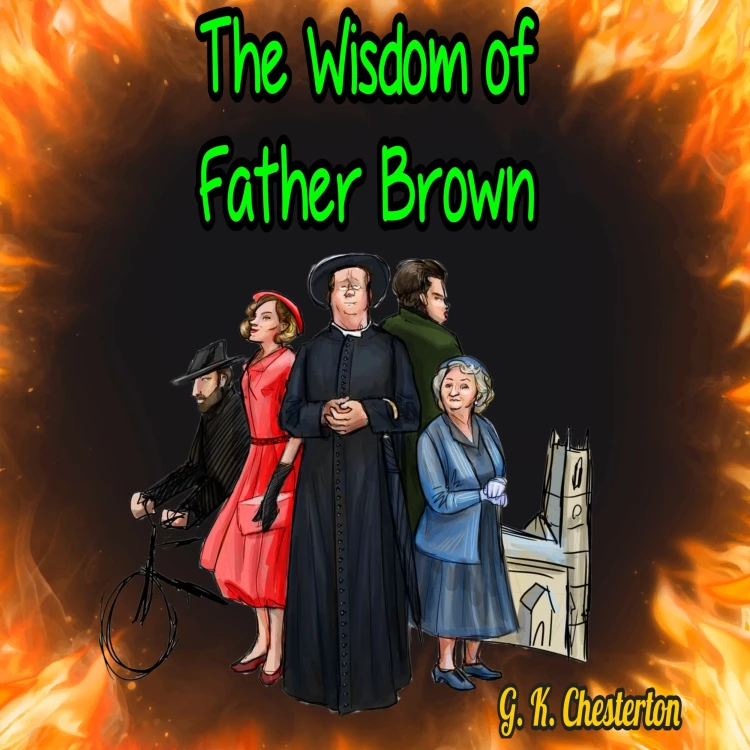
The Wisdom of Father Brown
G. K. Chesterton
Unabridged
7 Stunden 15 Minuten
Hinweis: Für das Abspielen der Hörbücher oder Hörspiele können auf den jeweiligen Plattformen, wie z.B. Spotify, Kosten anfallen. Lismio hat keinen Einfluss darauf, welche Hörbücher und Hörspiele bei dem Service verfügbar sind.
Einige Artikel enthalten Affiliate-Links (gekennzeichnet mit einem Sternchen *). Wenn ihr auf diese Links klickt und Produkte kauft, erhalten wir eine kleine Provision, ohne dass für euch zusätzliche Kosten entstehen. Eure Unterstützung hilft, diese Seite am Laufen zu halten und weiterhin nützlichen Content zu erstellen. Danke für eure Unterstützung!
Vom Herausgeber
The Wisdom of Father Brown by G. K. Chesterton Audiobook - Dr. Orion Hood is one of the eminent thinkers of his day, a psychologist whose expert opinion on human nature is sometimes sought by the police. Usually, he is called on to solve only the most spectacular crimes-a nobleman murdered, a diplomat poisoned-but today a more ordinary problem presents itself.
An amiable little priest named Father Brown asks Dr. Hood to help a young couple whose families do not want them to marry. Suspicions about the would-be groom abound-dynamite is thought to be his weapon of choice-but Father Brown hopes that Dr. Hood will be able to put the accusations to rest. In the end, however, it is the humble clergyman who picks through the towering evidence of guilt to ensure that love prevails.
In this masterful collection of mysteries, including "The Paradise of Thieves," "The Mistake of the Machine," and "The Man in the Passage," Father Brown employs his amazing intuition, developed over years of listening to men confess their sins, to solve crimes large and small. One of the most beloved heroes in all of detective fiction, this unassuming parish priest is as dedicated to the cause of justice as he is to his faith.
Gilbert Keith (G.K.) Chesterton (1874-1936) was a prolific English writer and philosopher who is remembered for his wit, his humor and his sharp logical insights. He is best known for his novels featuring the detective Father Brown, but he was also a major figure in the development of early 20th century Christian apologetics. He was an essayist and a journalist, a poet and a playwright, and a novelist and a biographer.
Born in London in 1874, Gilbert Keith Chesterton was educated at St. Paul's school, where he was an active member of the debating society. After studying at the Slade School of Art, he began to write for the Daily News in 1901. His witty and insightful pieces on a variety of topics soon earned him a reputation as an important public intellectual.
Throughout his career, Chesterton wrote a number of noted works, including novels, plays, essays, and short stories. His works often focused on the idea of orthodoxy, and he was a strong advocate of traditional values and the Christian faith. He wrote a number of apologetics, including The Everlasting Man and Orthodoxy, both of which explored the importance of religious beliefs in modern life. He also wrote several highly successful detective novels, featuring the beloved character Father Brown, who used his wit and wisdom to solve cases.
An amiable little priest named Father Brown asks Dr. Hood to help a young couple whose families do not want them to marry. Suspicions about the would-be groom abound-dynamite is thought to be his weapon of choice-but Father Brown hopes that Dr. Hood will be able to put the accusations to rest. In the end, however, it is the humble clergyman who picks through the towering evidence of guilt to ensure that love prevails.
In this masterful collection of mysteries, including "The Paradise of Thieves," "The Mistake of the Machine," and "The Man in the Passage," Father Brown employs his amazing intuition, developed over years of listening to men confess their sins, to solve crimes large and small. One of the most beloved heroes in all of detective fiction, this unassuming parish priest is as dedicated to the cause of justice as he is to his faith.
Gilbert Keith (G.K.) Chesterton (1874-1936) was a prolific English writer and philosopher who is remembered for his wit, his humor and his sharp logical insights. He is best known for his novels featuring the detective Father Brown, but he was also a major figure in the development of early 20th century Christian apologetics. He was an essayist and a journalist, a poet and a playwright, and a novelist and a biographer.
Born in London in 1874, Gilbert Keith Chesterton was educated at St. Paul's school, where he was an active member of the debating society. After studying at the Slade School of Art, he began to write for the Daily News in 1901. His witty and insightful pieces on a variety of topics soon earned him a reputation as an important public intellectual.
Throughout his career, Chesterton wrote a number of noted works, including novels, plays, essays, and short stories. His works often focused on the idea of orthodoxy, and he was a strong advocate of traditional values and the Christian faith. He wrote a number of apologetics, including The Everlasting Man and Orthodoxy, both of which explored the importance of religious beliefs in modern life. He also wrote several highly successful detective novels, featuring the beloved character Father Brown, who used his wit and wisdom to solve cases.








